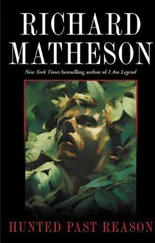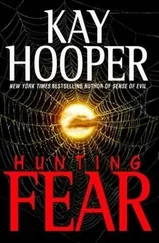He beamed with joy as he told us that his new bed had been made with clean sheets. “Smooth as moss,” he declared while performing a jig of delight all around the kitchen.
“Oh, Daniel, I am so pleased for you,” Mama said. “I am sure you will both be very happy.”
I remember thinking, Let’s not rush into things …. For I could easily imagine his wildness causing havoc in his new home.
That evening, my mother confided in me that she had helped wear down Senhora Beatriz’s resistance, and though I should like to say that she was proved immediately right, and that Daniel’s new household became a refuge of calm and contentment, the truth is that he found living under his grandmother’s roof rather too confining. He passed their first couple of months together inventing ever new ways to provoke her. I particularly recall him once setting alight a pushcart of dried flowers in New Square.
Then one day in December, about two and a half months after moving in with her, having come home filthy from an adventure with me down by the river, he tracked dirt all over the house. On purpose, I am quite sure. Senhora Beatriz was equally certain of this, and she raised her hand to strike him for the very first time. But she found herself unable to do so. She collapsed onto her bed and sobbed instead.
Daniel had never seen a woman cry as though her lifeblood were flowing out of her. He vowed aloud to be kind to her, caressing her hair as she wept. And to his credit, he kept his word. He still had his mad adventures, of course, but never again did he do anything on purpose to embarrass or hurt her.
Indeed, he only made her cry once again. And then it was beyond his powers to avoid.
Fanny, my border collie, arrived one day in December of 1800 on a ship from Glasgow. I soon discovered that she was a kind and noble beast, except when engaged in the serious matter of eating. If disturbed from her bowl, Fanny barked. If further pestered, she would curl back her lip and bare her lethal incisors with a low growl. Upon a third inconvenience, she bit.
By the end of April of 1801, Fanny, Daniel, Violeta, and I were the best of friends. The dog was especially fond of Violeta and would, I think, have had a difficult time choosing whom to cast her lot with, me or her, if ever such an unhappy decision were necessary.
On our outings to the tarn, Violeta hardly ever walked with Daniel and me anymore, instead joining us there at midday, since her mother had an unparalleled knack for inventing endless morning errands. The lass always completed her tasks as quickly as possible and never once failed to join us, until the second Saturday of June, 1801, when we had been friends for nearly a year. By three in the afternoon, she still had not arrived. Daniel and I began our walk home in a dejected mood, pounding the pathway in worried silence. When we were about a third of the way to the city, at the edge of a thick woods, Fanny lifted up her ears and came to a halt, sniffing at the air, her black nostrils flaring. Creeping off into a scruffy copse of trees, she went nosing along through ferns and weeds.
“Good girl,” I called as I followed her. “Keep going.”
On reaching her, I spied an elderly hunter about fifty yards away. “Sorry to disturb you, sir,” I said as we approached him. “But we are looking for a friend — a young lass.”
“I’ve seen no one.”
Fanny sniffed happily at the man’s shoes. He petted her head, then pointed his weapon toward a clearing far in the distance. “It may be of no help, but I did see a slipper over that way. By a large pine, just past an old stone wall.”
We thanked him and raced off. Sure enough, we found one of Violeta’s ribboned shoes by some rocks fallen from an ancient enclosure.
“Might he have hurt her?” I asked.
Daniel bit his lip and would not answer.
Near the road, I found Violeta’s beige linen dress lying crumpled on the ground, mottled with sunlight filtering through the canopy of a tall tree. A chill descended over me, like a great shadow. No, I whispered to myself. Please, no …
Fanny ran off and began whining at the base of a gentle slope. We found the girl there, lost to consciousness, lying on her side, her legs hidden by ferns. She was wearing only her petticoat, which was ripped at the side seam. Her beautiful hair was a tangled mess. Soil and leaves were smeared on her brow, cheeks, elbows, and legs, and blood covered her mouth.
I was trembling. I believed her death would kill me too. Tears flooded my eyes as I fell to my knees. “Violeta, please get up, you’re scaring me.”
Kneeling beside her, Daniel lifted her head carefully and called her name, but she would not wake up. Tears were streaming down his cheeks. “What do we do, John? What do we do?” he cried.
Perhaps it was Daniel’s pleading, or even Fanny’s mad huffing at her face, but the lass started to awaken. Daniel leaned over her with an expression of gratitude so full and deep that I would remember it all my life. The gentleness of his smile in that moment — intended to show Violeta that all would be well because they were together — has always symbolized to me the great truth of love. Caressing the nape of her neck, he said, “Violeta, what happened — what’s happened to you?”
She made no reply. “Don’t go back to sleep — please say something, we’re worried,” I said.
But she would not — or could not — speak.
I retrieved Violeta’s dress and covered her. So fragile and lovely was she to me in that moment that I made a solemn pact with myself: If she recovered, I would never again protest my secondary role in their lives.
She opened her hand to me now. In it she held a bloody molar.
I accepted her offering.
“What happened?” Daniel asked.
She rubbed her hand over her cheek and winced.
“We’ve got to get a physician,” Daniel observed in a rush, as though our need for assistance had only now occurred to him. “Violeta, you’ll have to see someone.”
“I’ll run to Porto,” I said.
“No, be still,” the girl begged.
She turned and hugged her arms around Fanny, seeming to sleep the slumber of fever for a time. Then, without warning, she breathed in sharply and held out her hand. “John, give me my tooth back.”
When I handed it to her, she gripped it in her fist.
“Who did this?” Daniel demanded, his face tight with anger. “Was it a hunter with a tattered jacket? We saw him. We know. And we know what he did.”
“No, two young bandits came after me to rob my jewelry,” she answered matter-of-factly. “I started running and fell. That’s all that happened.”
“Bandits who wouldn’t take your bracelet or rings are either blind or dimwitted,” I stated for the record.
“Nevertheless, John, that is exactly what took place,” she answered, plainly irritated.
“We don’t believe you!” Daniel shouted. “Violeta, who … who violated you?”
Frowning, she shook the tooth in the hollow of her hand to hear it rattle against her rings. Opening her palm, she mumbled a prayer and then threw it away.
“Hey!” Daniel hollered. “What did you do that for?”
“Let the mice have it. They cannot practice witchcraft on me.” She shivered. “Now, step away. I want to put on my dress.”
“Come, Fanny,” I said to the dog, who looked up doubtfully at me.
“No, leave her with me,” Violeta pleaded.
Daniel and I skulked off. The lad was kicking the ground and mumbling curses to himself. “I’ll kill whoever did this to her!”
“Did they … did they truly violate her?” I whispered.
He sneered at me, plainly considering my question an affront to his intelligence. “We did nothing to prevent it. Nothing!”
Читать дальше












